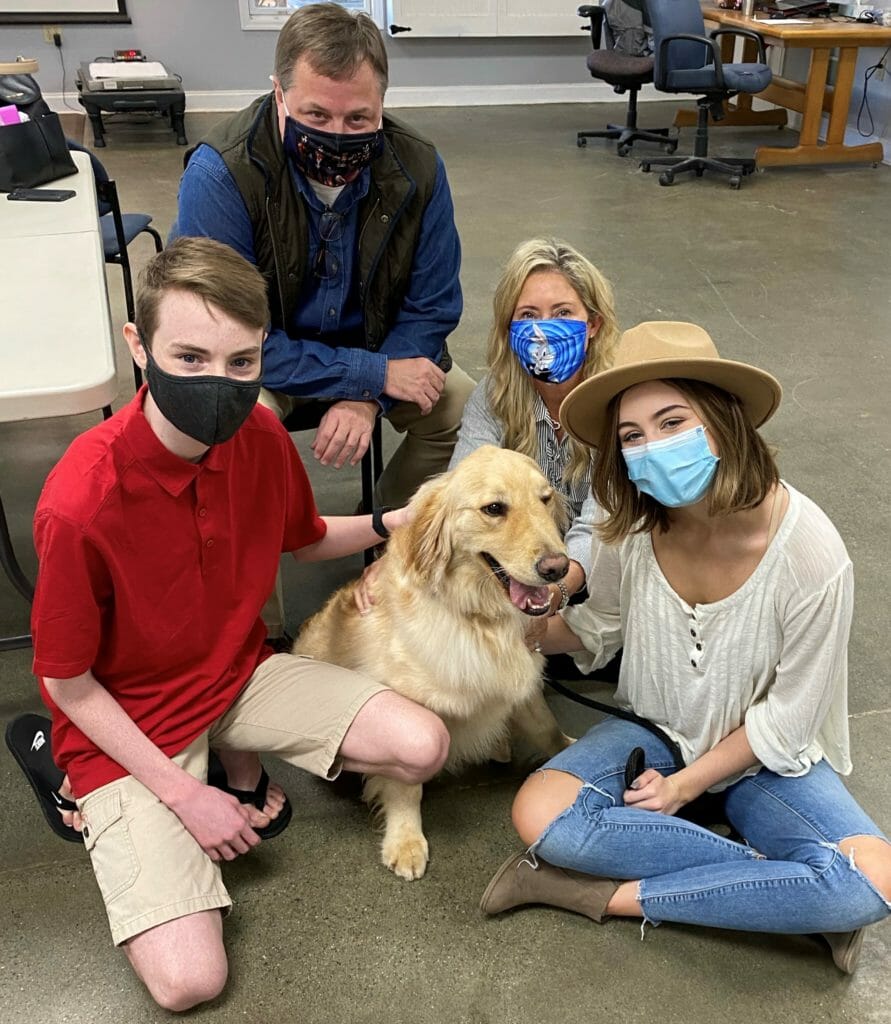
A Georgia-based senior living operator is partnering with a nonprofit service dog trainer to staff its metro Atlanta-based assisted living communities with COVID-sniffing canines.
Benton House CEO Mike Allard said a story about COVID-sniffing dogs being used at airports overseas caught his attention. He said he was impressed not only by how quickly the canines learned to track the virus, but how accurate they were in detecting it — greater than 95% accuracy.
Known for his charitable giving, Allard already had a relationship with Milton, GA-based Canine Assistants, which provides service dogs to individuals with special needs at no cost. He contacted the owner about what he had read and found out the company already was testing the concept with some of its dogs, which typically are trained to detect changes in blood sugar or seizures.
The dogs identify the virus via sterile swabs used to collect sweat samples from individuals.
Five dogs are in training, with plans to introduce Marshall, a COVID-sniffing golden retriever, to the company’s Sugar Hill facility in mid-February. If the pilot is a success, Allard said he plans to introduce the other four dogs at assisted living communities in Decatur, Grayson, Newnan and Woodstock.
“We want to see what we can learn at the first community before we launch a full program,” Allard told McKnight’s Senior Living. “I would love to have them in all of our communities, maybe an industry thing where we have the option available.”
Allard provided the initial seed money for the dogs, which covers training, vaccinations, food and boarding. Each dog, which will reside at the facility where it “works,” will be assigned a primary and secondary handler. Allard said it wasn’t difficult finding volunteers to take on the task of handling Marshall.
“It’s been pure enthusiasm,” he said of the reaction from staff members. “I think we’re just excited to see it roll out.”
Marshall will have a week of acclimation with his handlers before getting to work. Initially, Allard said, Marshall will work at shift change to screen incoming staff members. Anyone identified as potentially COVID-19-positive will take a rapid-results test.
Eventually, the dog will interact with both staff members and residents. Marshall will live at Sugar Hill for 90 days before any other dogs are placed in communities. During that time, Benton House will report back to Canine Assistants, which will use the research to potentially offer the service to other clients.
Allard said that most of Benton House’s communities have COVID-19 positivity rates “well north of 10%,” with twice-weekly testing occurring. The dogs, he said, will be used in addition to other testing protocols as an extra layer of protection.
Allard said the announcement about the program was made during community vaccine clinics. Residents probably were more excited about the dogs than the COVID-19 vaccine, he added.
“We’re not at all worried about the living arrangements. We have pets at our communities,” Allard said, adding that he hopes to expand the program out of state within the next five years.
Allard said he also hopes to expand the scent recognition capabilities of the dogs through additional training to other common health concerns, including influenza, methicillin-resistant Staphylococcus aureus and urinary tract infections.




